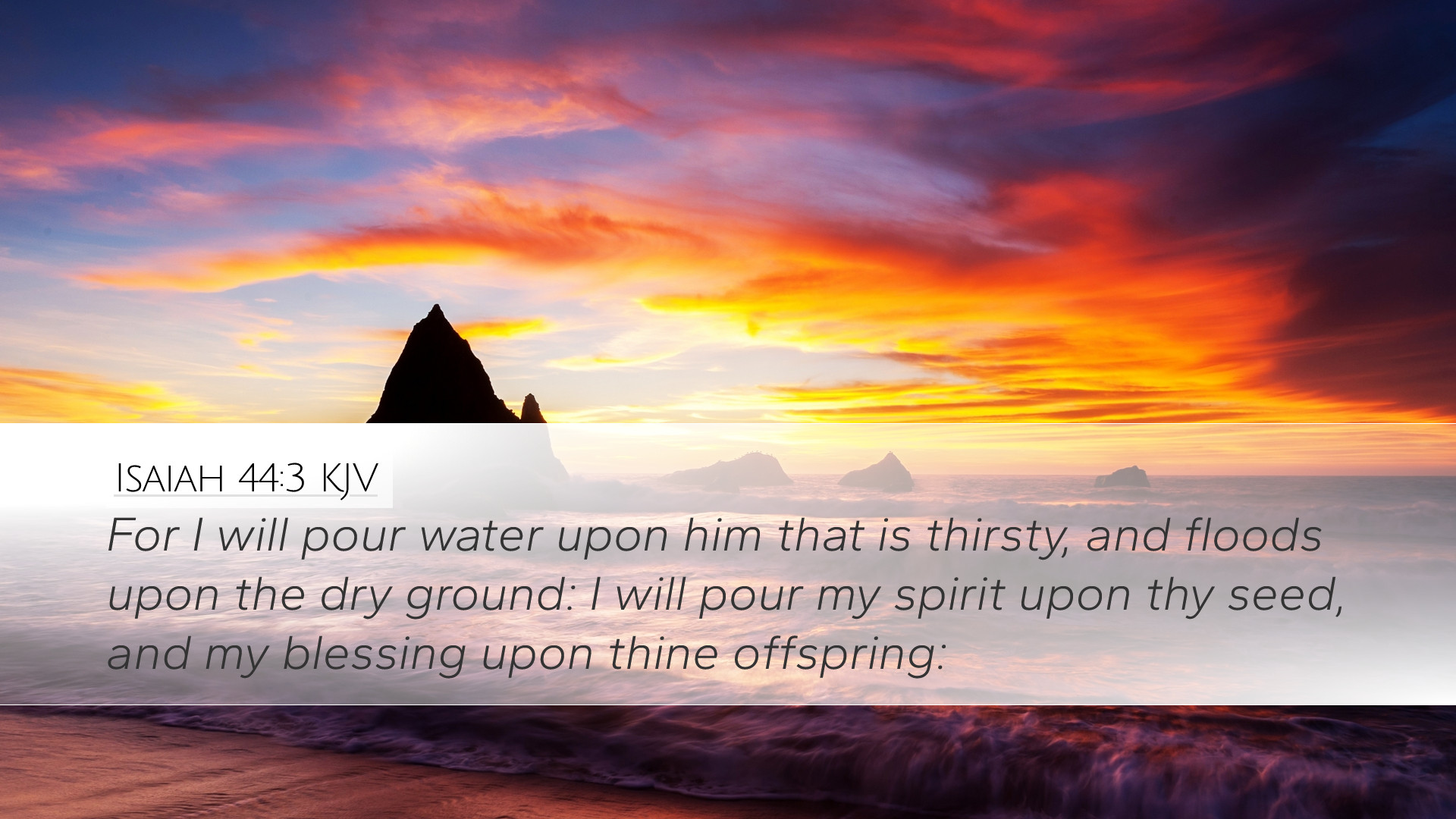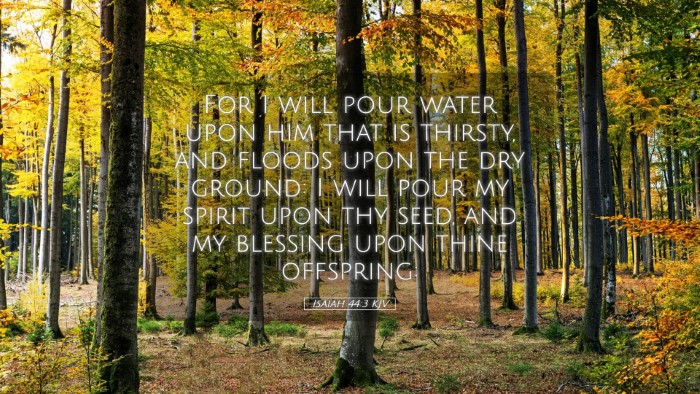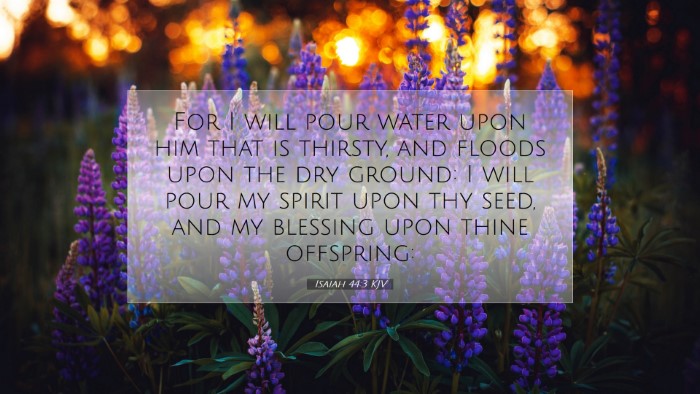Isaiah 44:3 Commentary
Text of Isaiah 44:3 (KJV): "For I will pour water upon him that is thirsty, and floods upon the dry ground: I will pour my spirit upon thy seed, and my blessing upon thine offspring."
Introduction
This verse from Isaiah serves as a profound promise of God's provision and the outpouring of the Holy Spirit. Multiple commentators have illuminated the significance of this scripture, offering insights that reflect God's desire for spiritual renewal among His people. The themes of thirst, blessing, and divine indwelling in this passage resonate deeply with both historical and contemporary audiences.
The Promise of Refreshment
Matthew Henry highlights the metaphor of water as an essential need and a symbol of spiritual refreshment. His commentary emphasizes the importance of recognizing our spiritual thirst, which aligns with John 7:37, where Christ invites the thirsty to come to Him. Henry suggests that the "water" signifies not only sustenance but also the cleansing and renewing work of the Holy Spirit.
Albert Barnes expands on this by noting that the “floods upon the dry ground” illustrate the overwhelming grace of God. Just as floods transform desolate land into fertile ground, God's Spirit can regenerate and rejuvenate the spiritually barren. This metaphor importantly reflects the revival and rejuvenation God promises to pour out on His people.
The Outpouring of the Spirit
Adam Clarke elaborates on the significance of the phrase “I will pour my Spirit.” Clarke relates this promise to the New Testament fulfillment during Pentecost (Acts 2), underscoring that this outpouring is not limited to the immediate audience but extends to all who believe. The Spirit's role is to guide, empower, and cultivate a vibrant faith in believers.
Clarke also discusses the implications of this promise for future generations—“my blessing upon thine offspring.” The continuity of God’s blessings helping to fulfill His covenant with His people is an essential element of understanding divine faithfulness.
Spiritual Thirst
In discussing spiritual thirst, Henry draws attention to the character of those whom God chooses to bless. He notes that God pours His blessings upon "him that is thirsty," pointing toward the necessity of humility and acknowledgment of one's need for God. This perspective encourages believers to seek God fervently, recognizing their need for divine sustenance.
Barnes complements this perspective by emphasizing that being thirsty is a condition that must be acknowledged. It is only when individuals recognize their spiritual inadequacy that they can genuinely receive the outpouring of God's Spirit. The call to thirst is a universal invitation for all to come and be filled.
Application for Life
The implications of Isaiah 44:3 are profound for both personal and corporate faith expressions. Pastors and leaders can utilize this scripture to encourage congregations to seek spiritual renewal within themselves and their communities. The promise of God's outpouring positions the church as a place of hope, where the thirsty can be rejuvenated by the Spirit.
Students and theologians may find in this verse a foundational truth regarding the role of the Holy Spirit in the life of believers. The interplay of divine action and human receptivity is a recurring theme that encourages deeper theological reflection on soteriology and eschatology.
Moreover, this promise underscores God's unwavering commitment to bless future generations. Therefore, contemporary Christian discipleship must include the instruction and encouragement of the next generation, that they too may experience God's spirit and blessing in their lives.
Conclusion
Isaiah 44:3 encapsulates a divine promise that resonates across time, calling for an awareness of spiritual thirst and a readiness to receive the outpouring of the Holy Spirit. Through the combined insights of Henry, Barnes, and Clarke, we understand that this promise invites all to look toward God for replenishment and renewal, encouraging the faithful to acknowledge their desire for His presence.
Ultimately, this verse serves both as a profound encouragement for individual believers and as a rallying cry for communities of faith to articulate and fulfill their calling in Christ, trusting in the sufficiency of God's Spirit to transform and bless.


